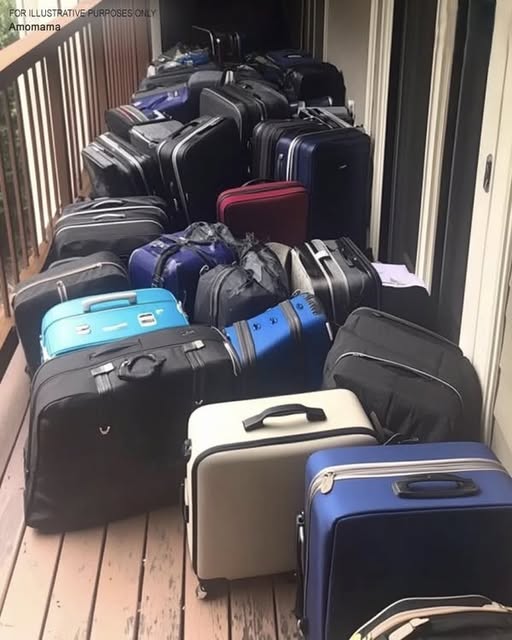I, on the other hand, was seventeen and had never known life outside those walls. I had been Dad’s shadow, following him around as he fixed things, cooking dinner for him when he got home from work.
“Home-cooked meals are the way to go, Dawn,” he always said. “No matter how tired you are, always make something for yourself.”
“Do noodles from the packet count?” I had asked once.
I still remember the way he laughed.
Charlotte never had those moments with him. She was eighteen when I was born—already an adult, already pulling away. To her, I was an afterthought, an inconvenience.
She never read me bedtime stories. Never played games with me. When Dad took us out for ice cream, she barely glanced up from her phone.
Still, I believed, in some small way, she cared. That when it really mattered, she’d be there.
I was wrong.
Two weeks after the funeral, we sat in the lawyer’s office. Charlotte barely looked sad—if anything, she looked bored, checking her nails while waiting for the reading of the will.
The lawyer cleared his throat.
“The house goes to Charlotte.”
My stomach twisted, but I said nothing. Why? Why would my father do this?
“And to you,” the lawyer turned to me, “your father left this.”
He handed me a small box. I knew what was inside before I even opened it.
Dad’s watch.
Old, scratched, barely working—but it had been a constant presence on his wrist.
Charlotte snorted.
“Seriously? His watch?” she laughed. “Even dead, Dad still plays favorites.”
I ignored her. My fingers traced the worn leather strap. It smelled like him. I didn’t care about the house. I didn’t care about the belongings. I just wanted my dad back.
For the next few days, I clung to routine—school, work, home. I needed it, because without it, I’d drown in grief.
Then, one night, I came home from my shift at the coffee shop and found my suitcases by the front door.
Charlotte stood in the hallway, arms crossed, a smug smile on her face.
“This is it,” she said. “Our paths split here, Dawn. I need you to leave.”
I blinked, certain I was hearing wrong.
“You heard me,” she said. “The house is mine. The lawyer said so. And I’m done playing babysitter.”
My breath caught. My body felt frozen.
“Charlotte,” I whispered. “I have nowhere else to go.”
“Not my problem,” she said cheerfully. “Figure it out.”
Tears burned my eyes, but I refused to cry.
“You’re really doing this?”
She smirked.
“You should’ve been nicer to me growing up, sis,” she said. “Maybe then, I’d feel bad.”
My hands shook as I grabbed my phone and called our lawyer.
“Charlotte kicked me out,” I blurted the moment he answered. “What do I do?”
There was a pause. Then—laughter.
“I can’t believe it,” he said. “Everything is happening just as your father predicted. Come to my office tomorrow. I have something for you.”
I spent the night at a bed and breakfast, courtesy of the lawyer, but I barely slept.
The next morning, I dragged myself to his office. He greeted me with a warm smile.
“Sit down, kid,” he said. “You’re going to want to be sitting for this.”
He slid a folder across the desk.
“Your father was a smart man, Dawn. He knew Charlotte would throw you out the moment she got control of the house.”
“He knew?” My voice wavered.
“That’s why he made me prepare this.”
Matthew opened the folder, revealing stacks of paperwork.
“Seven years ago, your father inherited nearly two million dollars. It came from a distant relative he had taken care of in her final years. He never told either of you, but he had his reasons.”
I could barely breathe.
“He split the money between you and Charlotte,” Matthew continued.
My heart sank. “So she still gets a share?”
“Yes—but there’s a catch. She only gets her portion if she shares the house with you.”
I sat up straighter. Suddenly, there was a way out of this mess.
“If Charlotte refuses, she gets nothing.”
Matthew chuckled at the shock on my face.
“And there’s more,” he said.
He slid a letter across the desk. My hands trembled as I opened it.
It was my dad’s writing.
Dawn, my darling,
I know Charlotte. I know what she’ll do. But you are smarter than her—you always have been. The money is in a safety deposit box. Use it wisely, my girl.
I love you more than anything.
—Dad
I stared at the details of the account.
“I don’t know the code,” I whispered.
Matthew smiled.
“The watch,” he said simply.
I turned Dad’s watch over. Tiny scratches on the back—four faint digits.
A code.
I laughed—really laughed—for the first time since he died.
Charlotte had the house, but she also had all the debt. And she had just kicked out the one person who could save her from losing everything.
A few days later, my phone rang. Charlotte.
I let it ring, then picked up.
“You knew, didn’t you?” she spat.
“Knew what?” I asked innocently.
“The lawyer called. The house has debt. A lot of it. If I don’t pay it off, I lose everything.” Her voice shook. “And you… you have the money, don’t you?”
I twirled my dad’s watch around my wrist.
“I might,” I said. “But you kicked me out, remember?”
Silence.
“You have to help me,” she finally said.
I smiled.
“I would have, Charlotte,” I said. “If you had been nicer to me growing up. Maybe then, I’d feel bad.”
Then I hung up.
A few weeks later, I moved into a small studio apartment—close to school, close to work, mine.
One evening, I passed by our old house. A SOLD sign stood in the yard.
I should’ve felt bad. But I didn’t.
It was never home without Dad.
But in a way, he was still looking out for me.
